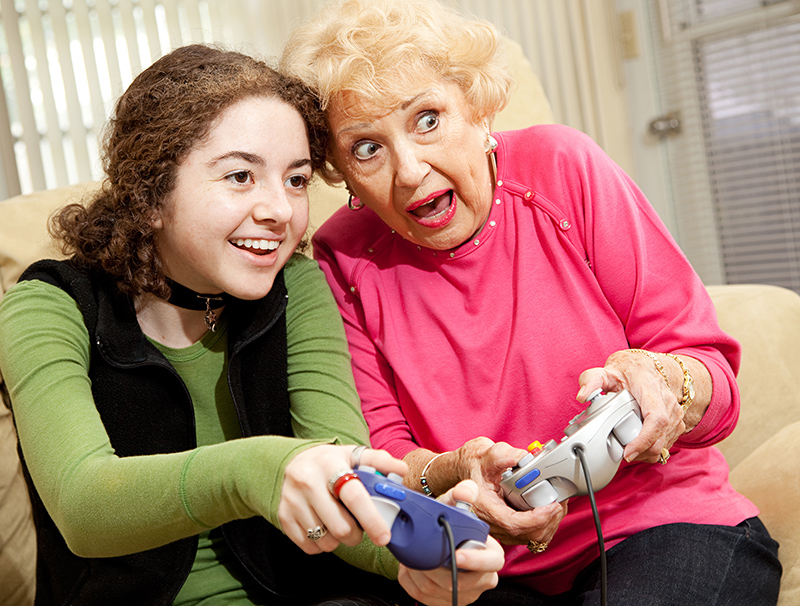Are You Worried About Your Memory or Dementia?
As we get older, we begin to get concerned about our memory and thinking abilities. We seem to take longer to learn new things. Or, we forget to pay a bill. It’s totally normal to misplace your wallet or forget the names of your kids’ friends every so often. These things are usually signs of mild forgetfulness which is a normal part of aging.
But while some memory lapses are no big deal, others could signal the beginnings of dementia. Dementia includes Alzheimer’s disease, frontotemporal disorders, and Lewy body dementia.
What’s the difference between normal, age-related forgetfulness and a serious memory problem? Serious memory problems make it hard to do everyday things like driving and shopping. Be AWake to some of the signs and symptoms.
- Inability to remember having a conversation with someone
- Difficulty with tasks like paying bills or writing checks
- Asking the same questions over and over
- You get lost when you’re driving in familiar places
- You don’t trust people anymore
- When Should I See A Doctor?
If you or a family member has been having trouble remembering recent events or thinking clearly, talk with your doctor. A thorough check up is needed to see what might be causing the symptoms. The Annual Medicare wellness visit includes a cognition assessment. This is covered by Medicare for patients who have had Medicare Part B insurance for at least one year. Sometimes the problem is depression, an infection or medication side effect and can be treated. Other times if the problem is Alzheimer’s disease, progression cannot be reversed. That is why finding the cause of your memory problem is important.
What is MCI?
MCI is the acronym for Mild Cognitive Impairment. Some older adults do have mild cognitive problems but that does not mean that they can’t take care of themselves or participate in normal activities. They just have a few more thinking problems than others their age. Not everyone with MCI develops Alzheimer’s Disease. Common signs of MCI include:
- Losing things often
- Forgetting to go to important events or appointments
- Having trouble coming up with desired words more often than others of the same age
If you feel you have MCI, you should visit your doctor every 6 to 12 months to see if you have any changes in memory and thinking skills. There may be some things you can do to maintain your memory and mental skills. There are no medications approved for the treatment of MCI.
What is Dementia?
Dementia is a loss of cognitive functioning, that is, thinking, remembering, learning and reasoning. These problems affect behavior and the ability to manage daily life and activities. Memory loss is common, but it is not the only sign of dementia. People often have problems with language skills, visual perception or paying attention. Some people experience personality changes. Dementia is not a normal part of aging. There are different forms of dementia, Alzheimer’s Disease being one.
The Difference Between Normal Aging and Alzheimer’s Disease
Normal Aging
- Making a bad decision once in a while
- Missing a monthly payment
- Forgetting which day it is and remembering it later
- Sometimes forgetting which word to use
- Losing things from time to time
Alzheimer’s Disease
- Making poor judgements and decisions a lot of the time
- Problems taking care of monthly bills
- Losing track of the date or time of year
- Trouble having a conversation
- Misplacing things often and being unable to find them
- Be AWake to Memory Care
- Reduce Risks to Cognitive Health
Take Care of Your Physical Health
- Get recommended health screenings
- Manage chronic disease like diabetes, high blood pressure, depression and cholesterol
- Reduce your fall risk
- Limit alcohol
- Get enough sleep, generally 7 to 8 hours each night
Get Better Organized! If you put things in their proper places, they will be there when you look for them. Car keys, for example, should go back on the key holder, the drawer, your purse or wherever you decide the proper place for them. Always put them there and they will be there when you look for them. Ditto for other objects like your purse, your hat or your glasses. Life is a lot simpler when everything is in its place! Work harder to pay attention and concentrate. It’s easy to forget what you’re looking for when opening the fridge. Distractions cause you to forget, not your memory.
Eat well. Your diet should include fruits and vegetables, whole grains, lean meats, fish and poultry and low fat dairy products. Limit solid fats, sugar and salt. Control portion sizes. Drink plenty of water and other fluids. You might want to take vitamin supplements. The B vitamins and D3 are best.
Exercise your body. Believe it or not, cardiovascular exercise, like walking, will improve memory and brain function. If your doctor approves, get active. Activity also helps your strength, balance and blood circulation and improves mood.
Keep your mind active. Be social and stay connected with others! Enjoy time with friends and family. Walk together. Share a meal together. Take up a hobby. Volunteer in the community. Join programs at your local Area Agency on Aging, senior center, church, synagogue or other organization. Take a photography class. Learn to quilt. Read books and play games.
Video Games? Now is the time to challenge your brain. Although some memory loss is a natural part of aging, you should try new activities that make you think. Go to a museum, or the library, once a month. Learn words in a new language. Do a crossword or Sudoku puzzle. Get a younger person to show you how to play the latest video games. Who knows? You might even have some fun and make new friends.
Depression vs. Dementia…What is the difference?
Depression is marked by a rapid mental decline, but memory of time, date and awareness of the environment remains. Motor skills are slow, but normal in depression. People suffering with depression are concerned about concentration and memory.
Dementia is marked by a slow mental decline with confusion and inability to recognize familiar locations. Writing, speaking and motor skills are impaired. People suffering with dementia often do not think they have a memory problem.
March is Social Workers Month!
Medical social workers, sometimes called case managers, provide support and resources to patients recovering from illness or injury. First an assessment is done to identify patient needs. The social worker meets with the patient’s family and health providers to coordinate an individualized discharge plan for in-home care, therapy, medical equipment, transportation, counseling or other follow-up treatments.











Comments are closed.